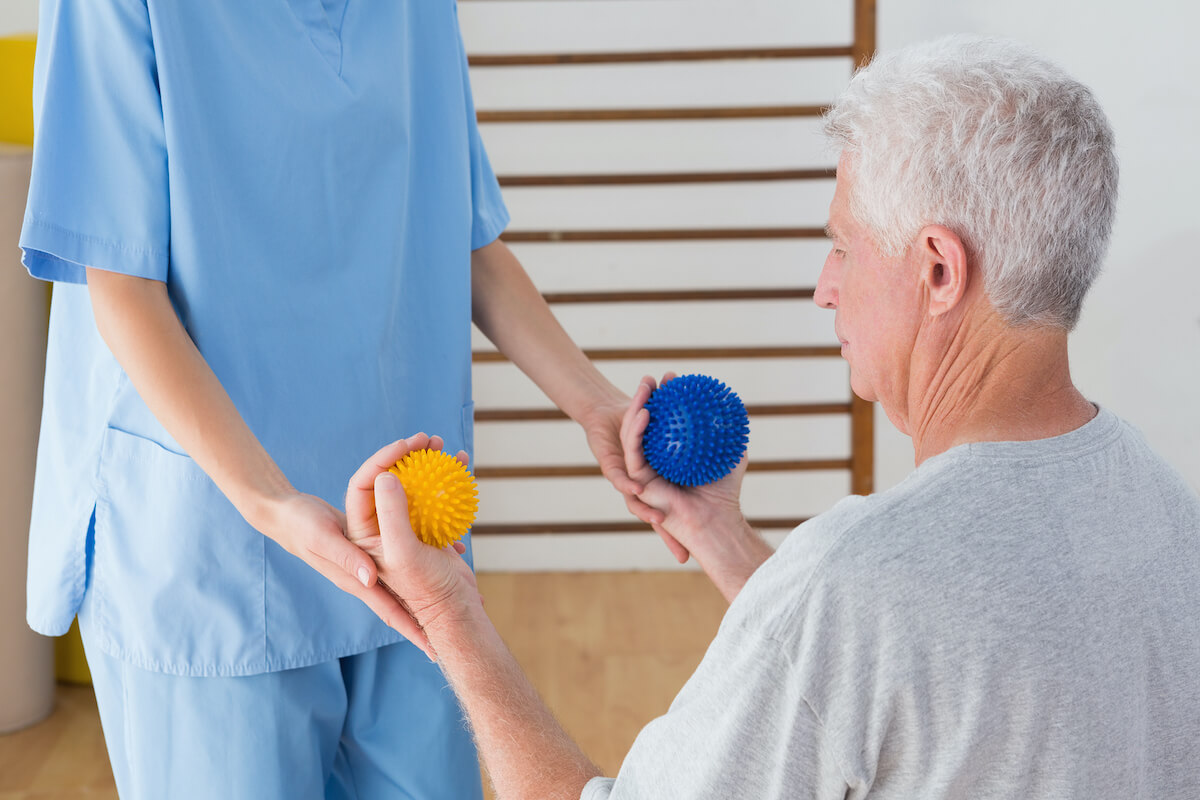June 19, 2018

Following an illness, injury or surgery it’s vital to take part in a rehabilitation program. Rehab services are generally comprised of three components: physical therapy, occupational therapy and speech therapy. While physical therapy focuses on helping you regain strength and mobility, occupational therapy is key in helping you regain independence in everyday tasks known as activities of daily living (ADLs). ADLs include tasks like dressing, eating and bathing.
Over one-third of occupational therapists work with seniors who have been affected by an illness, injury, disability or mental health condition. First, an evaluation will be conducted to determine your level of cognitive and physical ability. You’ll be asked to perform certain tasks and will be rated on how much assistance you need, if any, to complete them. Then, an occupational therapist creates a personalized care plan that describes what type of special training, services and therapeutic intervention is necessary for your individual needs. Occupational therapy is essential for ADLs by focusing on getting you back to a productive, independent lifestyle.
There are many differences between occupational therapy vs physical therapy. Unlike physical therapy, which focuses more on restoring muscle strength, flexibility, range of motion and reducing pain, the goal of occupational therapy is to return you to the level of independence you enjoyed before your injury or illness. Occupational therapists will also teach you how to compensate for any challenges you may be facing, as well as how to improve your overall health and wellness.
Some of the activities of daily living occupational therapy can help restore include:
• Showering and bathing
• Feeding and eating
• Grooming and other personal hygiene tasks
• Toileting
• Functional mobility- helping perform tasks while moving from place to place
• Other daily activities like writing, cooking, housekeeping and more
Occupational therapy for seniors also includes recommendations for necessary assistive devices that can make completing daily tasks easier. The occupational therapist will evaluate your home or living space and can determine what devices will be most helpful to your personal situation. For example, you may need grab bars installed in your bathroom for the tub or toilet or a shower chair if you have difficulty standing for periods of time. Weighted utensils and plates can assist with coordination problems. There are also devices that can help you get dressed, change your clothing or put on shoes. You will learn how to best optimize your home so you can fully participate in daily living tasks.
As you progress through therapy, your condition will be re-evaluated and your personalized care plan will be adjusted accordingly. If certain goals are being met and others are falling behind, changes will be made to ensure the areas that need more attention are the new focus.
Franciscan Ministries offers quality senior rehabilitation throughout our senior living communities designed to restore your abilities and get you back home faster. Our skilled nursing and rehabilitative care are Joint Commission Accredited, exemplifying our commitment to providing the highest quality care. Explore our rehabilitation services by community:
For more information about our senior rehabilitative services, please contact us today.